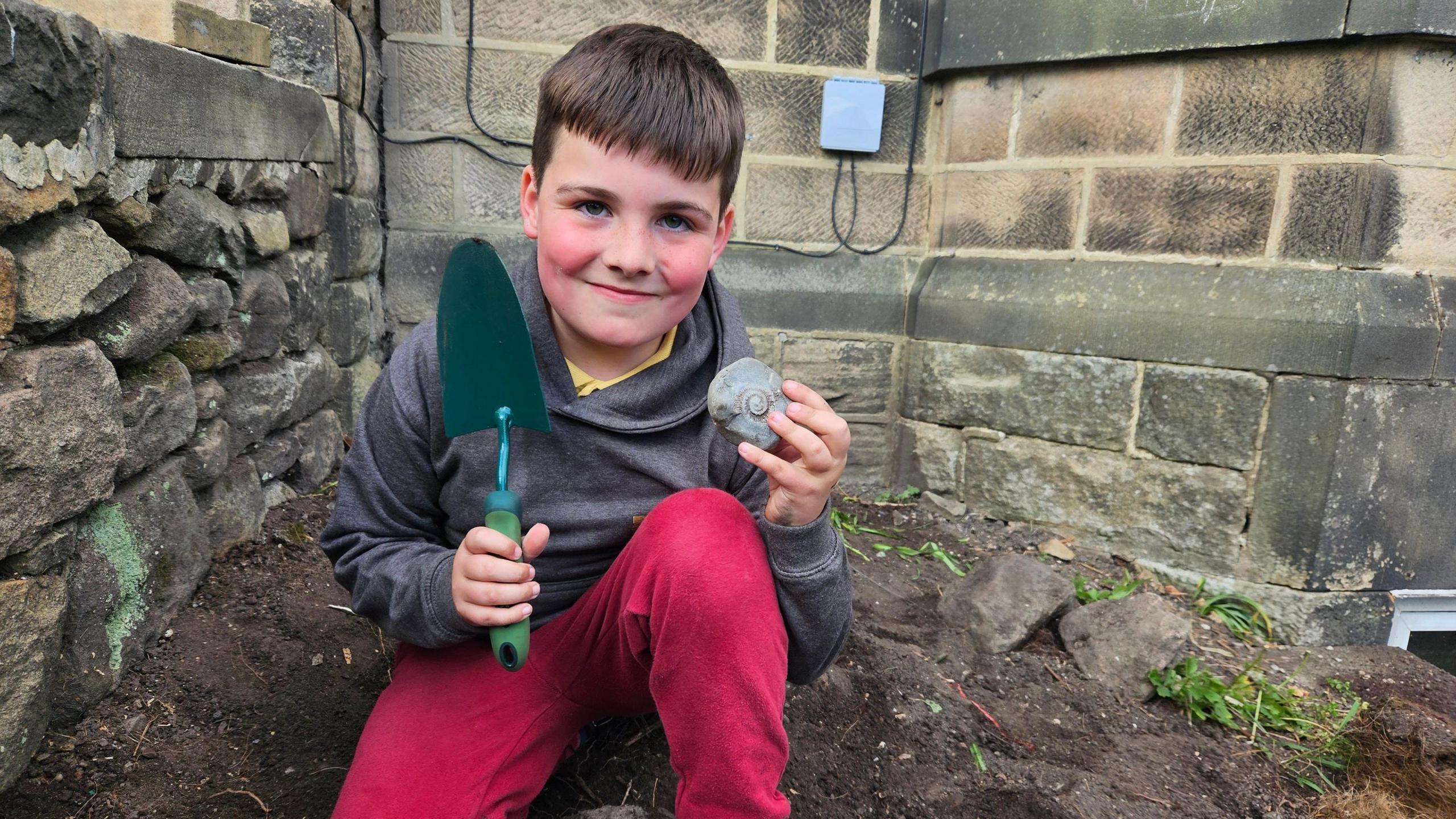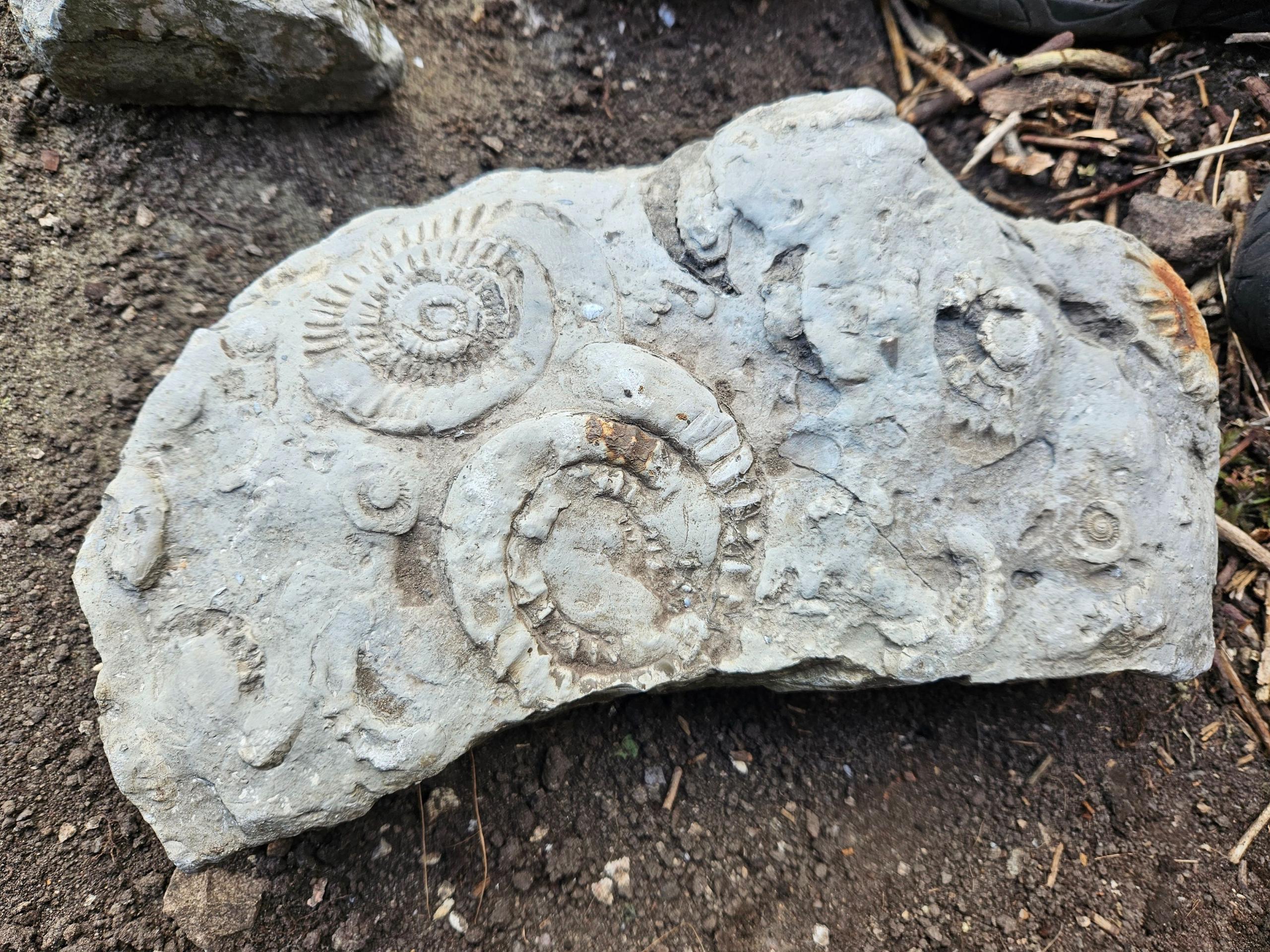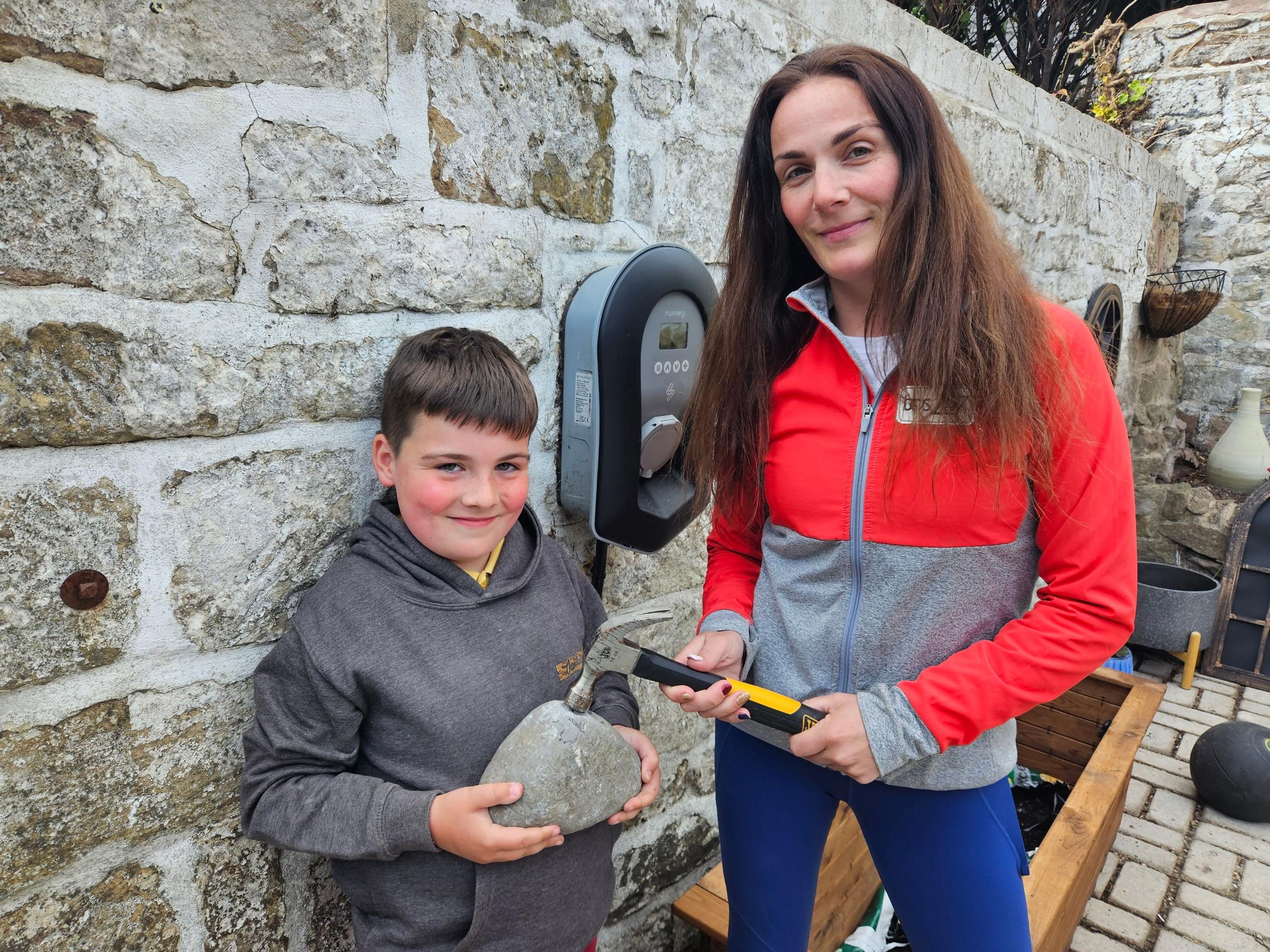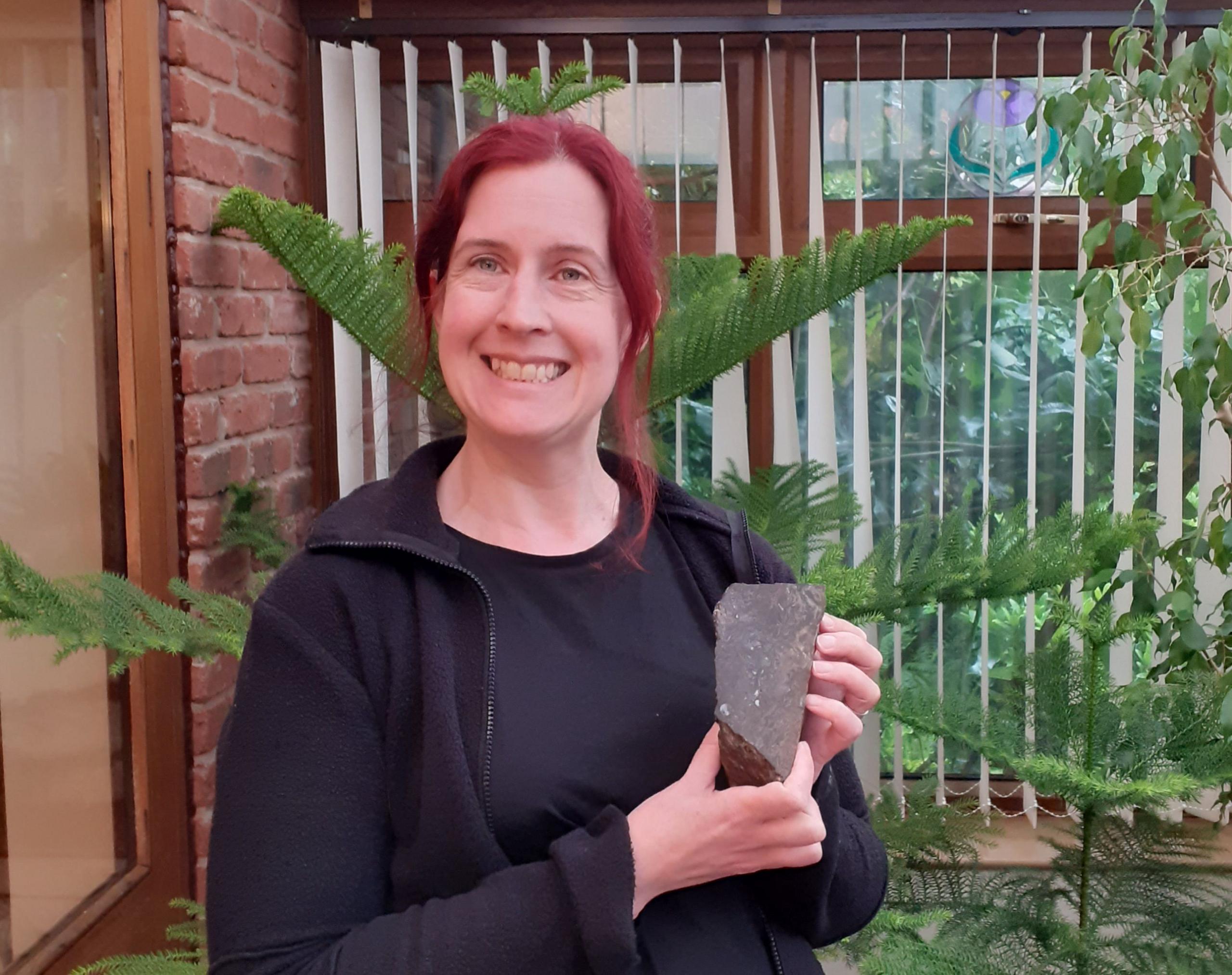Boy discovers Jurassic fossils in his own garden

Elliott says he thinks fossils look "cool"
- Published
A budding palaeontologist has dug up fossils in his garden dating back 140 million years.
Elliott, seven, moved into his new home in Matlock, Derbyshire, three months ago.
During work in the front garden, he dug limestone rocks out of the ground after they had become exposed.
On cracking them open, he and his parents discovered they were full of Jurassic creatures.
Elliott said: "I love fossils. It made me really happy we just found it.
"When I look at one of my fossils, it makes me really interested and I think, how many more dinosaurs can I find?
"Finding fossils is really inspiring and I want to do it more. They look so cool."

An expert told the BBC the fossils are Jurassic and probably brought to the garden from Dorset - by either collectors or builders
His mum Gemma, 42, added: "He's very excited - I'm not sure we like digging up the garden so much.
"But it's very exciting what he's finding, I'm very proud of him."

Elliott wants to be a palaeontologist when he grows up
Dr Susannah Lydon, a palaeontologist at the University of Nottingham, said fossils were more common than people might expect.
She added: "In the UK, most of our fossils are hidden under vegetation, which means the rocks they're in aren't at the surface or getting revealed by erosion.
"The good places tend to be where rocks are eroded, which tends to be the coast."

Dr Susannah Lydon says fossil hunting is not just for experts
While Matlock sits on rock that used to be an ancient reef and has lots of its own fossils, Dr Lydon believes these fossils were brought from elsewhere by humans.
She thinks this was probably done by either collectors or builders who took them from Dorset.
She said the rocks were about 140 to 180 million years old and contained ammonites – spiral-shelled molluscs that lived in the oceans while dinosaurs roamed the Earth.
Find your own fossils
"The joy of fossil hunting is finding something nothing else has seen for millions of years," she added.
"It gives you a view through all those years."
She said those interested in finding their own did not need any specialist equipment, adding they just need to know where to go.
She advised that beginners should take a guided tour to learn about the kinds of rocks to look out for, and that the best time and place to spot them are by cliffs after a storm.
Get in touch
Tell us which stories we should cover in Derby
Follow BBC Derby on Facebook, external, on X, external, or on Instagram, external. Send your story ideas to eastmidsnews@bbc.co.uk, external or via WhatsApp, external on 0808 100 2210.